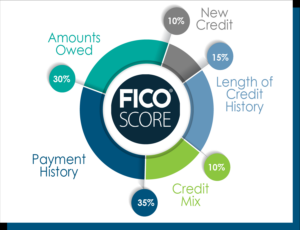Elevate Your Financial Health In 2024
Welcome to 2024!
It’s the perfect time to reevaluate and enhance your financial wellness. At NCACU, we’re excited to introduce our New Year Credit Refresh program, designed to empower you with tools and strategies to boost your credit score and optimize your savings.
Here’s how you can get started:
- Get a Free Credit Check-Up: Kickstart your financial health with a complimentary credit check-up at NCACU. Call or stop into any office to request your review. We’ll look for ways you can save — such as a loan refinance or consolidation opportunities. We’ll also look for errors in your report and check for potential fraud.
- Understand and Improve Your Credit Score: Discover where you stand credit-wise and learn practical methods to raise your score. There are surprisingly simple ways to boost your score, such as making on-time payments and reducing the amount of credit you tap into.
- Explore Cost-Effective Loan Options: Investigate our versatile loan offerings tailored to your financial needs. We can customize solutions based on your circumstances, and our rates are always competitive.
- Maximize Your Savings: Assess your current loan and credit card payments to identify potential savings opportunities. Look at the rates you’re paying and if the terms are manageable. At NCACU, we’re happy to customize your loan request for greater control over your money management.
Take a deep dive into your credit score:
- Credit scores range between 300 to 850. Scores under 600 are low and need attention, while scores over 720 are considered excellent.
- A higher credit score is your goal, indicating greater ‘creditworthiness’ for potential lenders. FICO (Fair Isaac Corporation) and VantageScore are the most commonly used credit scoring models. Lenders use these scores to decide how likely you are to repay borrowed money, and they can affect the interest rates and terms of credit you’re offered.
- Not only will a strong score help you unlock lower loan rates, but it will also provide other perks. These include more favorable insurance premiums and the ability to rent an apartment or home or even land a better job!
- Credit report errors are common and can hurt your score. We’ll help you identify potential mistakes (or fraud) and repair these inaccuracies.
A poor score can cost you money.
A low credit score can lead to higher expenses. If you’re seeking a loan for a car or a house and your credit standing is not strong, you could still be eligible for the loan but may pay a higher interest rate. Conversely, if you’ve managed your credit effectively and maintained a high score, you’re more likely to secure financing at a lower rate.
Ask for a complimentary credit review!
Already have a report on file with us? Let’s review it together. Or you can bring in your own report. We’ll look for ways you can save and help with refinancing opportunities.
If you don’t have a copy of your report, you can obtain a free copy at www.MyCreditReport.com. The three credit reporting agencies, Equifax, Experian, and TransUnion, can also assist.

Understanding score components:
Several items comprise your credit score, from the length of your credit history to how much available credit you tap into. Above all, your payment history is critical to maintaining a solid score.
- Debt Amount (30%): Aim to use less than 30% of your available credit.
- New Credit (10%): Limit new credit inquiries and accounts.
- Credit History Length (15%): Longer credit histories typically boost scores.
- Credit Mix (10%): A healthy mix of credit types can positively impact your score.
- Payment History (35%): On-time payments are crucial for a healthy score.
Improving your credit score:
- Pay your bills on time. Set yourself calendar reminders, set up automatic payments, put a note on your fridge – whatever works. Timely payments impact your credit score in a big way.
- Don’t tap into all of your available credit. Keep 50% of any credit line (credit cards and home equity lines) open.
- Build credit earlier. The longer your history, the higher the score you may have. Start with a shared secured loan or smaller limit credit card.
- Choose credit sources wisely. Build good credit with our credit-building options, such as a share secured loan. Avoid unscrupulous payday lenders.
- Too many credit applications can lower your score. Don’t apply for every credit offer you receive; apply for new loans cautiously. Be choosy as to where and how often you apply for credit.
- Look to have “good debt” on your credit report. Good debt can include auto loans and mortgages from reputable institutions.
- Correct report errors: Fixing errors is a solid way to improve your score and ensure your credit report accurately reflects your financial life.
Take advantage of a New Year Credit Refresh!
Together, we’ll explore your options and equip you with financial management tools to ensure a prosperous and worry-free year ahead.

